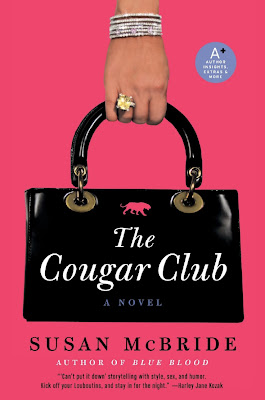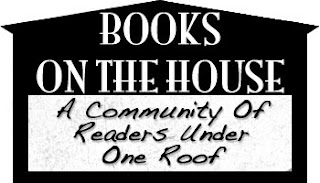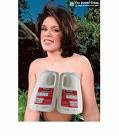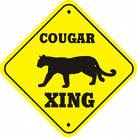The Cougar Club
Carla Moss in an interview
Aging anchormen are like Santa Claus. The more pot-bellied and bald they get, the more revered. Anchorwomen, on the other hand, are pretty much like Kleenex: disposable and always replaceable
“Welcome, everyone, to our annual Survivors Breakfast,” Allison Hoffman greeted the crowd. She theatrically fluffed the fuchsia feather boa draped over her shoulders, flinging its tail-end around her neck. “I do hope you’re all feeling as in the pink as I am this morning. Diva pink, I like to call it, though I believe our guest of honor has put on Chanel pink, isn’t that right, Carla?” the director teased, looking in Carla’s direction.
“You all know and love her as the face of Channel Three news. She’s been one of our biggest supporters for over a decade, headlining fundraisers and leading the pack at our annual Save the Ta-Tas Walk. In fact, I can’t think of enough good things to say about her, so why don’t I just let her speak for herself. Without further ado”—she made a grand sweep of her arm, shedding feathers from her boa—“Ms. Carla Moss.”
The lights glinted off her auburn hair and the gold buttons of her suit and shone so brightly in her eyes that she could see no farther than the first row of tables. Beyond that, heads appeared faceless, no more than blurred shadows. But Carla smiled and let her gaze roam the room, as if she could see them all.
As she leaned toward the microphone, she lightly clutched the sides of the lectern. “Wow, what a gorgeous group of woman, oh, and you don’t look too shabby either, sir,” she said, winking at a lonely gentleman surrounded by ladies at a first-tier table. The crowd chuckled heartily, and Carla paused before going on. “I’m here today in celebration of all of you, survivors and co-survivors alike. Honestly, after meeting so many of you before breakfast and hearing your stories, I think this amazing tribe of pink could run the world if it wanted to.”
The audience cheered, and Carla hesitated until the ballroom grew quiet again. “As you know if you’ve heard me speak before, I come from a long line of tough broads. My grandmother had breast cancer when I was in grade school, too young to realize what was going on. All I remember about her diagnosis was my mother crying on the phone and then packing her suitcase to head to Texas. She left my dad and me alone to fend for ourselves for a month while she cared for my grandma. But Granny was a fighter, and she made it through just fine.”
Carla’s finger curled around the lectern’s edges, and her voice wavered ever so slightly. “When I envision a survivor, I think of my grandmother living another twenty years after her breast cancer before she died at 85 of something else entirely. No, the breast cancer didn’t get her. She’d never have let it best her. She’d made it through the Great Depression and several World Wars to see men walk on the moon. A pesky thing like Stage 2a invasive ductal carcinoma wasn’t going to bring her down, and it didn’t.”
More hoots and “here here’s” erupted from the depths of the ballroom, and Carla paused until things quieted down again.
“After she was cancer-free, I stayed with her one summer. Every morning, she got up, stuck on her bra, tucked in her prosthesis, and she soldiered on. It was like nothing had ever happened, and it was like everything had happened. She’d become even more of what she was: more loving, more giving, and more fun. Granny took life by the balls, and she held on,” Carla declared and wet her lips, keeping her composure though the memories touched her still. “She lived her life to the fullest, as we all should, every day, no matter what our circumstances. And I challenge each and every one of you to do the same.”
A disjointed chorus of “amen’s” rang out and others clapped, and Carla felt her nerves finally easing. Her grip relaxed, and she exhaled softly through her glossed lips, holding her emotions in check.
“Even though my mother never had to deal with breast cancer, I still worry about her health, and I worry about my own. I try not to dwell on what I can’t control, but I can’t help wondering sometimes what’s in store for me and my boobs”—she lifted her hands to theatrically cup her breasts, glancing south-ward as she did so—“besides the tug of gravity, pulling them down more every year, of course.”
She smiled at the ensuing laughter, pleased she kept hitting the right notes. Her voice stronger now, she carried on. “What I do know for sure is that I’m not leaving much to chance. I’ve been having mammograms annually since I turned 35 and now with digital mammography—and the occasional ultrasound when my doctor sees something she doesn’t like—I feel like my knockers are being monitored more closely than any Playboy playmate’s.”
A broad grin slipped across Carla’s mouth at the raucous sound of hooting and hollering that followed that remark, which was when even the most lingering of butterflies fled her stomach altogether and she realized her audience wasn’t eating their $30 per plate breakfast so much as eating out of the palm of her hand.
You like me, you really like me, she mused happily and finished up her talk in twenty minutes flat, right on schedule, and left the podium to a standing ovation.
Excerpted with author’s permission from The Cougar Club (HarperCollins, 02/10). For more on this book, visit SusanMcBride.com.













